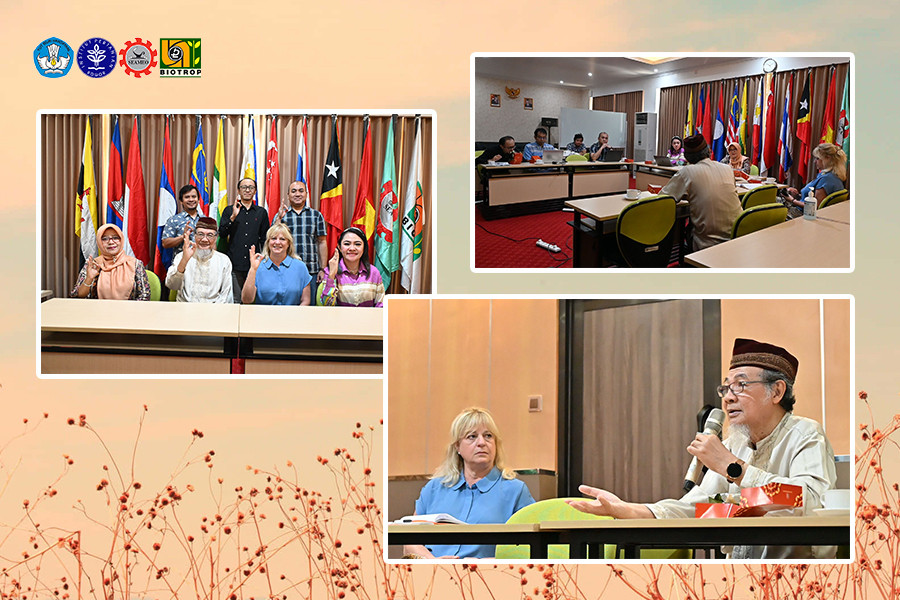On July 12, 2024, Miss Jan Fierro from Michigan State University (MSU) visits BIOTROP to explore collaborative opportunities in advancing agricultural biotechnology. The visit aims to strengthen the partnership between the two institutions, focusing on the development and implementation of blight and drought-resistant potatoes in Indonesia.
Miss Jan Fierro, serves as the Communication Manager for the Feed the Future Biotechnology Potato Partnership, and together with Dr. M. Herman, Country Coordinator of the Feed the Future Biotechnology Potato Partnership in Indonesia engages with BIOTROP representatives, including Ms. Sri Widayanti, Acting Deputy Director for Administration, and Ms. Dewi Suryani, Manager of the Human Centered Innovation Department. The collaboration aims to enhance the application of genetic engineering in Indonesian agriculture, promoting sustainable farming practices and improving crop yields.
During the visit, Dr. Herman presents findings from recent field trials. These trials demonstrate that biotech potatoes produced 34 tons per hectare without fungicides, compared to 31 tons per hectare with conventional methods. The trials underline the potential of biotech crops to boost productivity and reduce chemical usage.
An essential aspect of the visit is planning workshops to educate farmers on the benefits of biotech potatoes. The MSU delegation and BIOTROP team develop strategies to effectively communicate these advantages, emphasizing reduced reliance on chemicals and increased crop resilience.
The collaboration also focuses on advocating for supportive policies. The future collaboration potential including creating fact sheet on utilization of biotechnology products to be presented to government bodies, highlighting the economic and environmental benefits of biotech crops. Additionally, they plan to create educational materials, such as animated videos, to disseminate information to rural farmers.
Ms. Dewi Suryani showcases BIOTROP's initiatives in youth engagement and community outreach. Recent activities have involved young people in agricultural innovation, fostering the next generation of scientists and farmers. This focus aligns with the broader goal of promoting sustainable agricultural practices through education and community involvement.
The delegation also addresses concerns about the halal status of biotech products. Despite a halal certificate from the Indonesian Ulema Council (MUI) issued in 2013, there remains skepticism. The teams discuss strategies to engage with the halal committee and provide comprehensive information to ensure acceptance of biotech products.
The visit aims to pave the way for future collaborations, including joint research projects, student and faculty exchanges, and the development of new biotech solutions tailored to the needs of Indonesian farmers. Both institutions are committed to leveraging their expertise to promote agricultural innovation and sustainability.
 Tuesday, 16 July 2024 on 10:07am
Tuesday, 16 July 2024 on 10:07am
